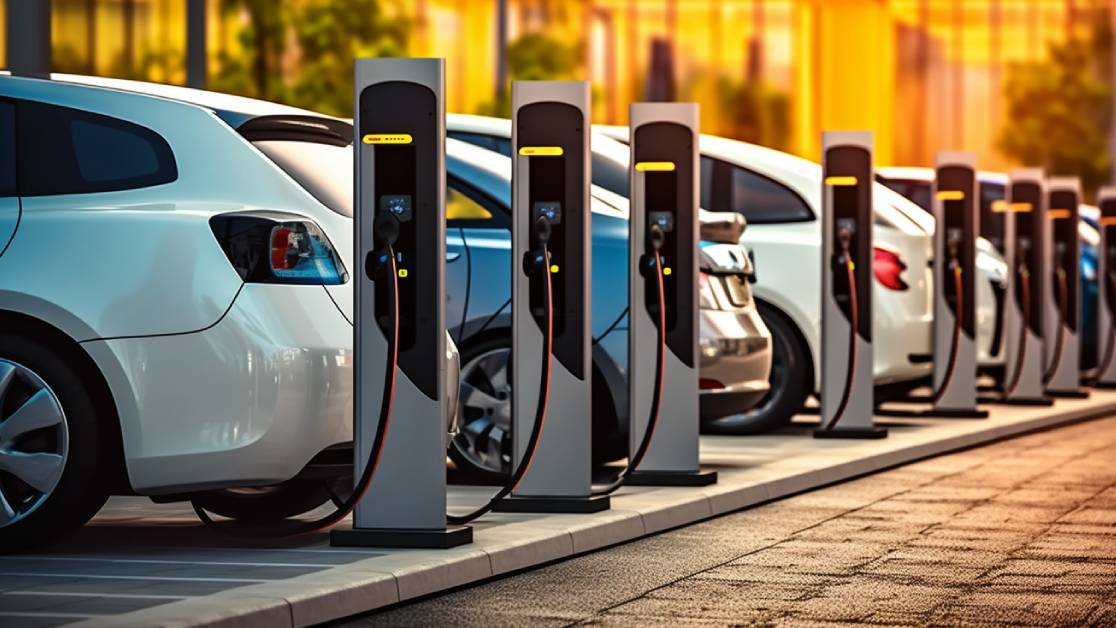1. EV Models:
-
Tesla: Tesla is one of the most well-known EV manufacturers, with models like the Model 3, Model Y, Model S, and Model X. These vehicles offer long ranges, impressive acceleration, and advanced autonomous driving features.
-
Chevrolet: Chevrolet's Bolt EV provides an affordable option with a substantial driving range. The Bolt EUV is a newer addition to the lineup.
-
Nissan: The Nissan Leaf is one of the earliest mass-market EVs and is available in various versions, including the Leaf Plus.
-
Ford: Ford offers the Mustang Mach-E, an all-electric SUV, and the upcoming all-electric Ford F-150 Lightning.
-
Volkswagen: Volkswagen's ID.4 is a compact electric SUV that aims to bring electric mobility to a broader audience.
-
Audi: Audi's e-tron and e-tron Sportback offer luxury and performance in the EV space.
-
Rivian: Rivian is an American EV startup known for its R1T electric pickup truck and R1S electric SUV.
-
Porsche: Porsche's Taycan is a high-performance electric sports car, demonstrating that EVs can offer both speed and luxury.
-
Lucid Motors: Lucid's Air is a luxury electric sedan with a focus on advanced technology and premium features.
-
Hyundai/Kia: These automakers offer multiple electric models, including the Hyundai Kona Electric and Kia Niro EV.
2. Charging Infrastructure:
-
Public Charging: The USA has an expanding network of public EV charging stations, including Level 2 chargers and fast-charging DC stations. Major charging networks like EVgo, ChargePoint, and Electrify America provide convenient access.
-
Home Charging: Many EV owners charge their vehicles at home using Level 1 or Level 2 chargers. Home charging is convenient and cost-effective.
-
Battery Swapping: Some companies are exploring battery-swapping stations as a quick alternative to recharging.
-
Charging Speeds: Charging times vary depending on the charger's speed and your vehicle's battery capacity. Level 2 chargers can take several hours for a full charge, while DC fast chargers provide much quicker charging.
3. Environmental Benefits:
-
EVs produce zero tailpipe emissions, reducing air pollution and greenhouse gas emissions.
-
The use of renewable energy for charging further decreases the carbon footprint of EVs.
-
EVs have lower operating costs due to fewer moving parts, reducing the overall cost of ownership.
4. Government Incentives:
-
Federal and state governments offer incentives to promote EV adoption, including tax credits, rebates, and access to carpool lanes.
-
Government initiatives also aim to expand charging infrastructure and research new battery technologies.
5. Sustainability and Challenges:
-
While EVs offer environmental benefits, challenges remain, such as the production of batteries, raw material sourcing, and recycling.
-
EV manufacturers are working on sustainable practices, including battery recycling and responsible sourcing of materials.
6. Future Trends:
-
Electric vehicles are expected to become more affordable, with greater range, and faster charging times.
-
Automakers are developing electric trucks and SUVs to cater to a wider audience.
-
Advances in battery technology, like solid-state batteries, promise increased energy density and longer lifespans.
The rise of electric vehicles in the USA represents a significant shift toward sustainability and clean transportation. As technology continues to evolve and charging infrastructure expands, the adoption of EVs is likely to accelerate, contributing to reduced emissions and a more sustainable future for transportation.




Comments (0)